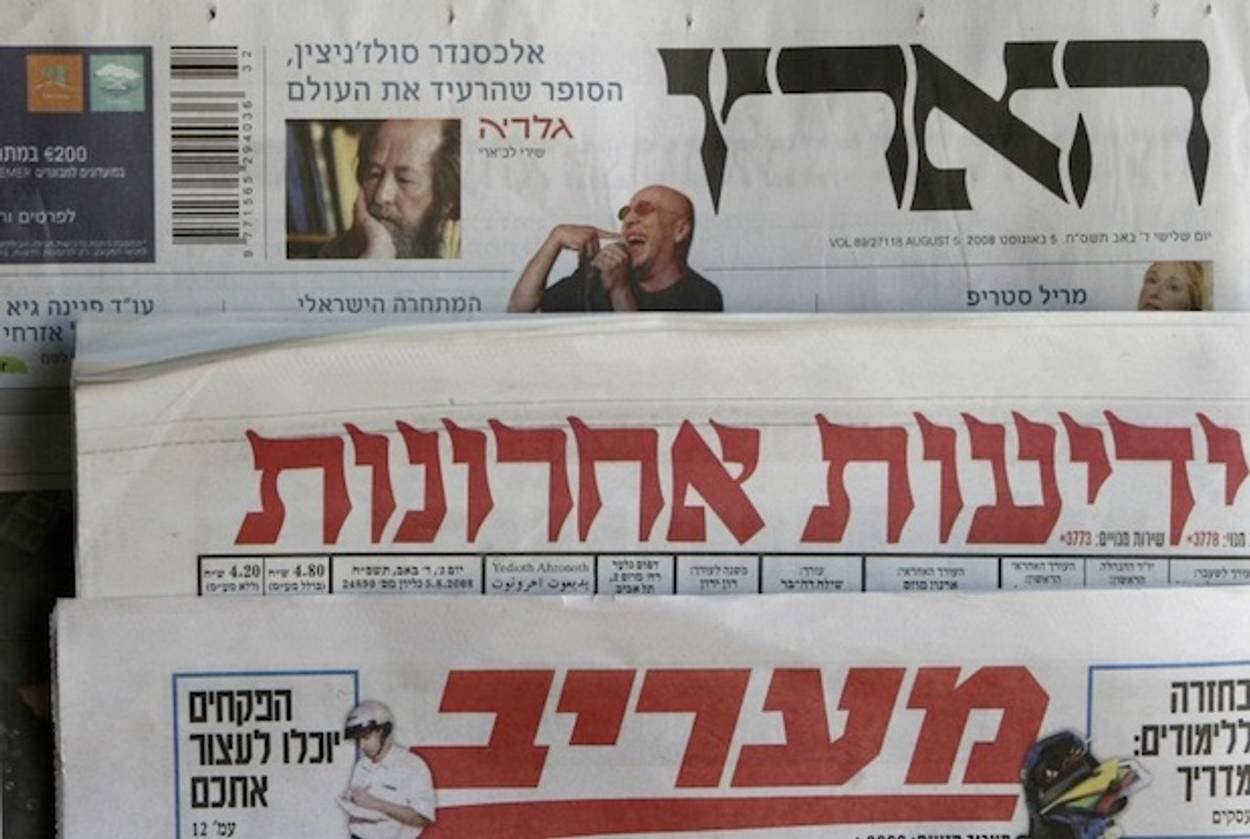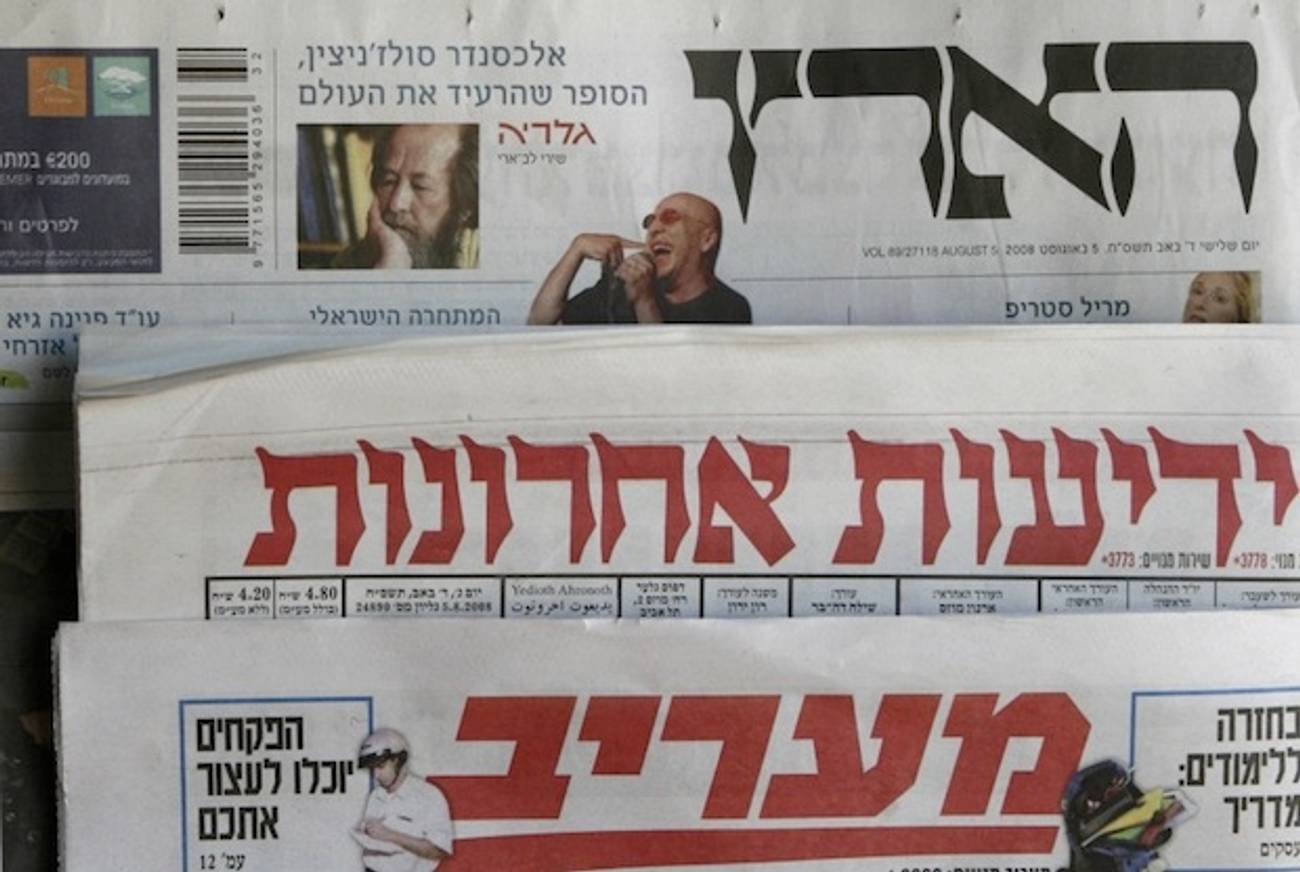‘Apathetic’ Tel Aviv v. Israel’s Bombarded South
Israel’s papers blame the city for its ‘apathy’ as fighting commences




To hear the Israeli media tell it, the real war that just broke out in the Holy Land is between the country’s beleaguered and bombarded south and its arch-enemy, Tel Aviv.
Calling the metropolitan “apathetic,” Yediot Ahraonot ran a persnickety story about its residents being unfazed by Hamas’ promises of imminent attacks, and took pains to inform its readers that Tel Avivis—among the city’s residents that were interviewed was a 20-year-old student with the unimprovable name Lear—felt no sense of camaraderie with their bombarded brethren down south and continued to live life in their city, unharmed by bombs, as if it was, in fact, unharmed by bombs.
Not to be outdone, Ma’ariv made the war between town and country personal, running an op-ed by a resident of a southern kibbutz who is disgusted by them city slickers and their lack of empathy. Stressing that some of her best friends live in Tel Aviv, the writer nonetheless called on “the state of Tel Aviv” to “wake up” lest the rest of Israel become convinced that the first Hebrew city housed nothing but radical leftists who took some sort of perverse joy in the suffering of the less fortunate.
But whereas Tel Aviv’s urbanites were the villains, the IDF and its soldiers were the heroes. Knowing from experience that it’s all downhill after the first strike, the media fawned over the hit on Jabari like a high school sophomore reliving a first kiss. The IAF’s video of the assassination received endless play, and previous assassinations were sweetly recalled. Dan Margalit, one of the nation’s most prominent journalists, captured the nostalgic mood in Yisrael Hayom; “For a moment,” he wrote, “the good old Israel popped up, cunning and quick and not cumbersome.” That it’s easy to be all of these things when hitting a dude in a car, and very, very hard when mounting a full-scale ground offensive, did not seem to cross Margalit’s mind.
It’s perfectly understandable, of course, that with the nation on the cusp of combat, its media would rally around the flag. But it’s also not too much to ask that among the din of the tum-tums, journalists deliver more sober assessments of what lies ahead. As usual, this job falls to Ha’aretz, and to it alone. In a terrific piece, the newspaper’s editor, Aluf Benn, reminded his readers that Israeli prime ministers have a habit of mounting major military operations a few months before they are up for re-election—Ehud Olmert, for example, did it in 2009 with Operation Cast Lead in Gaza, and Shimon Peres in 1996 with Operation Grapes of Wrath in Lebanon—and that such operations, historically, have a way of yielding very little results except for crushing political defeats to those who orchestrated them. That, at least, is the view from Tel Aviv.
Liel Leibovitz is editor-at-large for Tablet Magazine and a host of its weekly culture podcast Unorthodox and daily Talmud podcast Take One. He is the editor of Zionism: The Tablet Guide.